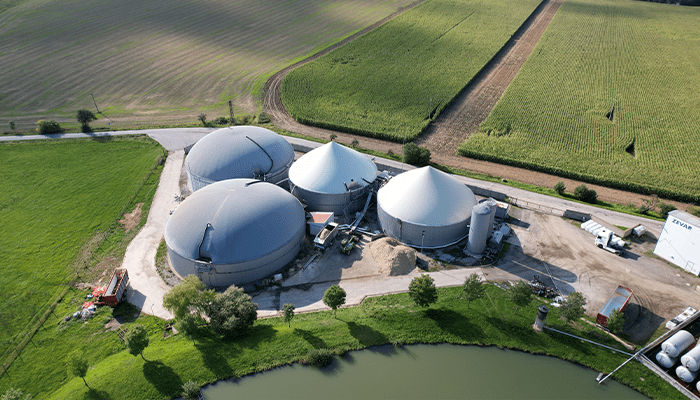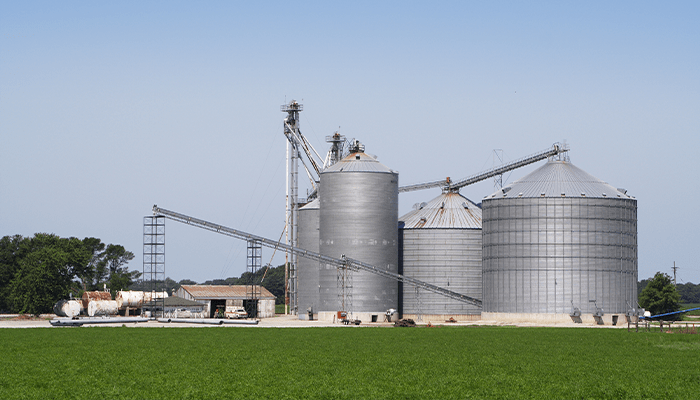
Top Tips for Winter Safety
Winter weather may have already appeared in your area, but if not, Jack Frost will likely pay a visit soon. Freezing temperatures, heavy snow, and ice are tough on nearly everything – creating a range of hazards – so be mindful and ready to react to weather changes to help protect your agribusiness operation.
Worker Safety
Even if you’re not in an area that gets frigid, the cold weather can still be dangerous. Those who work outdoors face the dangers of lowered body temperature, hypothermia, and frostbite. The following precautions can keep your workers safe:
- Dress for the weather to protect the body’s core. Multiple layers will help to keep body temperatures from dropping. The type of clothing and number of layers needed will depend on how physical the work is, how much movement is required, the amount of moisture in the air, and wind velocity.
- Work in teams to keep an eye on coworkers. It may be difficult to identify hypothermia but watch for shivering, amnesia, poor judgment, and apathy.
- Protect the hands, fingers, toes, ears, and face. These areas are the most susceptible to frostbite and can freeze in as little as two minutes.
- Know the symptoms of frostbite, which begins with pain followed by numbness. The cold stops blood flow to extremities, causing them to turn white.
- Provide a warm-up location where workers can go when needed to warm up. This could be a heated trailer or company vehicle. Portable heaters may be an option if they can be used safely.
- Provide equipment with heated handles, if available.
- Limit the amount of time workers are out in the cold. Monitor conditions and increase warm-up cycles to keep workers safe.
- Provide training and reminders to help workers recognize the symptoms of frostbite and hypothermia.
Carbon Monoxide Poisoning
Closed doors and windows keep warm air inside but restrict ventilation – increasing the risk of carbon monoxide poisoning when vehicles and machines run inside. Deaths from carbon monoxide exposure occur more during the winter than at any other time of year. To protect workers:
- Don’t use gas-powered engines indoors.
- Never start or leave vehicles, tractors, and other gas-powered machines in an enclosed area.
- Use tools powered by electricity whenever possible and safe.
- Install UL-approved carbon monoxide alarms.
- Inspect gas-powered machines regularly.
Workers should be familiar with the symptoms, including dizziness and confusion, blurry vision, vomiting, loss of consciousness, and fatigue. If carbon monoxide poisoning is suspected, workers should call 911, turn off machinery, and ventilate the area.
Livestock Safety
While most animals adapt to the cold weather, severe and prolonged cold weather can cause problematic stress – even those kept inside are not immune. Under extreme conditions, the following suggestions can offer protection:
- Provide extra, high-nutrient quality feed to help animals maintain body temperature.
- Ensure animals have access to an adequate supply of clean water, free of ice.
- Shelter animals from the wind and during extreme weather events and storms. If time inside is increased, keep bedding clean and dry.
- Consider where snow may drift and have a plan to keep gates, shelter openings, and roads clear.
- Closely monitor animals to ensure they are healthy.
Severe winter weather can endanger worker and livestock health and safety. Don’t wait for disaster to strike. Contact AssuredPartners Agribusiness for more safety resources and a review of your insurance program.
Featured News & Insights

Carbon credits as a concept have been around for years, offering both environmental and economic opportunities for the agriculture sector. With sustainable practices taking center stage, it's...

The outlook for the U.S. poultry market is promising as demand remains high, flock populations have recovered, and market prices are expected to increase, according to the USDA’s August 2024...

Grain entrapments are down 36 percent in 2023, according to Purdue University's Agricultural Safety and Health Program's latest "2023 Summary of U.S. Agricultural and Confined-Space Related Injuries...